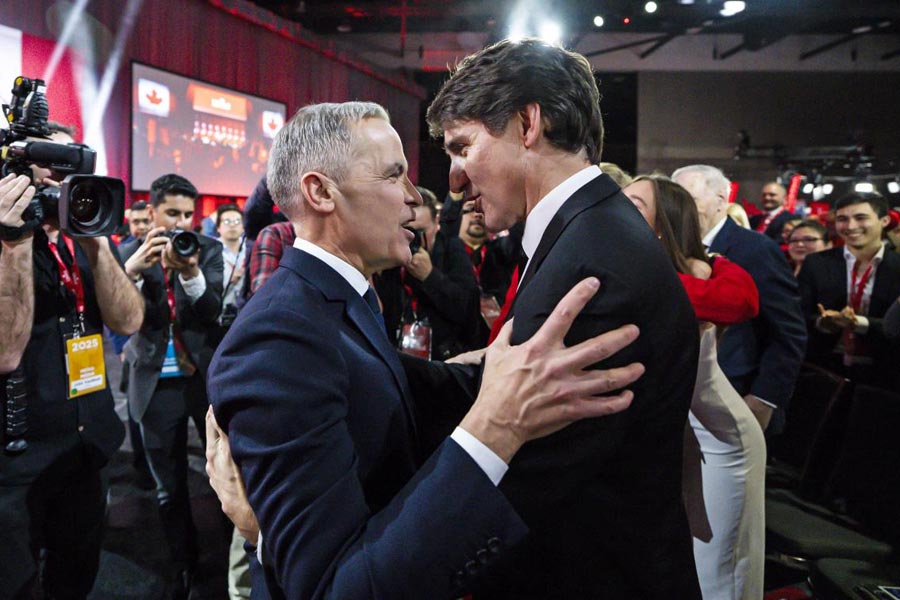An essential characteristic of modern capitalism is that the living conditions of millions of people are determined by the whims and caprices of a handful of financial speculators; indeed, that is what ‘leaving things to the market’ really entails. Consider what is happening in India today. There is a massive outflow of finance from the country because of which the rupee is depreciating vis-à-vis the dollar. It has already fallen by more than 10% since February even though the Reserve Bank of India has spent over $100 billion, almost a sixth of the country’s foreign exchange reserves, to prevent such a fall, and even though it has been raising the interest rate almost in tandem with the rise in the United States of America to discourage such an outflow.
The depreciation of the rupee is exacerbating the inflationary process by raising the cost of imported goods, including essential goods like oil; inflation, in turn, is creating expectations of a further depreciation of the exchange rate that become self-fulfilling: they encourage a further outflow of finance and cause a further depreciation of the rupee. So the spiral of depreciation-inflation-depreciation goes on, fed by the rush of speculators away from the rupee.
This latest financial outflow began with the rise in the US interest rates effected by the Federal Reserve Board from the beginning of March. The financial outflow was not only from India but from almost the entire capitalist world, barring one notable exception. That exception, ironically, was Russia, against whom sanctions were imposed by the Western powers led by the US with the avowed objective of ‘reducing the rouble to rubble’; and yet, after an initial fall, the rouble has recovered dramatically to reach a level vis-à-vis the dollar that has not been seen in years, aided no doubt by Russia’s insistence on being paid for its oil and gas in terms of roubles. The currencies of other capitalist countries, including India, by contrast are falling despite increases in their interest rates.
It may be thought that this financial outflow is occurring from India only because the rise in Indian interest rates has not yet matched the increase in US interest rates, that it would automatically come to an end when this matching is fully achieved; and, indeed, it is true that while the increase in the US federal funds rate between March 1 and October 31 has been 3%, the increase in the RBI’s repo rate has been around 2%. But the RBI is all set to raise the repo rate further, and will keep on doing so since it is about the only instrument available to it to entice financial flows under a neoliberal regime. It is not, therefore, some calculation of the interest rate differential that encourages the outflow of finance, but a general sense of a change in conjuncture, an abrupt loss of ‘confidence’ on the part of speculators in non-dollar currencies, a loss that is fed by the depreciation-inflation-depreciation spiral mentioned above.
The worldwide rise in interest rates will increase unemployment everywhere. In heavily indebted third world countries, it will in addition make debt servicing even more difficult, leading to even more draconian measures of ‘austerity’. The worst victims of the rise in interest rates, therefore, will be the working people of the third world who count as the poorest in the world. Their living standards are thus being determined by the whims and caprices of speculators who are engaged in a flight to the dollar; and therein lies the viciousness and utter irrationality of capitalism.
John Maynard Keynes was aware of this irrationality. A thorough anti-communist, he thought capitalism could be saved by removing this irrationality and his panacea was ‘socialisation of investment’. Social ownership of the means of production, he thought, could be avoided, and the capitalist world spared the fate that had befallen Russia, by effecting socialisation of investment, that is, by bringing in the State as the agency that ensured perpetual full employment no matter what the level of private investment may be. The State, in short, was to be given charge of steering the system.
The post-war period saw the emergence of dirigiste regimes in the advanced capitalist world as well as in the third world where the State did steer the system to avoid demand constraints; indeed, the international monetary arrangement worked out at the Bretton Woods conference allowed member countries to impose controls on both trade and capital flows so that the State in each country could have the elbow room to play such a steering role. But this hybrid capitalism could not last.
Finance capital got strengthened, initially through a steady outpouring of dollars owing to US fiscal deficits that got accumulated in European and American banks and, later, after the oil shocks of the Seventies through an immense increase in OPEC oil revenues deposited with the same banks. It effected a new international arrangement, the neoliberal one, which meant a removal of the trade and capital controls that had existed earlier and, hence, the institution of relatively unrestricted flows of commodities and capital across country-borders. It meant, in short, a revival of the pre-1930s capitalism that not only the Bolsheviks but even liberal economists like Keynes had ‘despised’.
It again meant leaving the fates of millions to the whims of finance. The common people, who had seen growing hunger and poverty even when finance was flowing into the country, are now going to be hit hard when finance has started flowing out.
Prabhat Patnaik is Professor Emeritus, Centre for Economic Studies, Jawaharlal Nehru University, New Delhi











